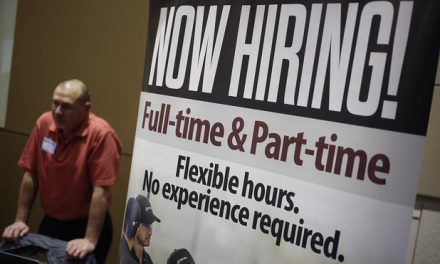The financial situation in the United States back in 2008 was one of the worst recessions the country had faced in over 80 years. During that period of slowdown, many cities were doing their best to avoid further debt while other cities were able to build-up their financial situation. Superstar cities thrived while many weak cities struggled to catch up. Many wonder how and why this could happen, but the reasons are difficult to notice. They are also extremely challenging to duplicate.
In general, the country’s unemployment rate has decreased tremendously, household income continues to rise, and businesses have flourished. However, according to a Reuters analysis of federal data, growth and development have not been evenly distributed across the nation.
The analysis data showed that out of 378 metropolitan regions, 40% of the total new job opportunities plus additional wages went to the top 20 areas. The cities only make up a quarter of the country’s total population and are located mostly in the fast-growing southern and coastal regions. There were no cities from the northeast that was able to benefit from it while only Grand Rapids, Michigan, and Detroit from the “rust belt” interior was part of the list.
The top 21 to 40 cities only made up 10% of the jobs generated from 2010 to 2017. These cities account for only 7.5% of the USA’s population. The bottom 251 cities ended up losing job share.
How Nashville Prospered
Many regions have well-known reasons for their success, like for Houston, it has long been famous for being an oil town. Another example would be San Francisco. It is the epicenter of technological advancements. Among all the cities that have developed and advanced through the decade, Nashville, the music city, had a surprising outcome.
Nashville is ranked 11th on the list, in the same league as Charlotte, Atlanta, Seattle, and San Francisco. People in Nashville have pointed out numerous factors that could have led to the city’s progress, including the state’s deficit of an income tax. Some also mentioned the city’s unique assets to be the reason behind its success.
Back when the country was facing an economic and financial crisis, Nashville was able to spend $600 million to build a convention center. This decision was a gamble but showed how essential it is to have a bold political leader. Presence of political leadership is what officials and economists have pointed out to be the main factor for cities to succeed. Another reason why Nashville has progressed into the developed city it is today is the city’s love for country music and the year-round daily parties. These have attracted many organizations to hold their significant conferences and trade shows in the city.
A decade after building the convention center, the city has thousands of new hotels around the area, including a 33-story Marriott. Amazon also announced that it would build a logistics center in the town, which will provide 5,000 jobs. You can say that Nashville is one of the few positive outcomes after the recession. It tells a story about how new and unexpected competitors can rise after a disastrous recession.
When the country was able to get through the crisis, interest rates were at an all-time low, and companies were aggressively trying to build-up their business once again. A representative from the convention center said that because of the situation, no one could ever build something like that at the cost that they paid for again. Having that building enabled the city to gain new momentum while others were struggling to get started.
For cities that housed companies that were involved in growth industries such as healthcare, it was beneficial. But it was incredibly challenging for cities that had firms related to sectors that had closed shop in the US and relocated to a different nation. An example of such an industry would be textile.
In Nashville, the private sector jobs rose up by 31%, which is double the national job growth rate from 2010 to 2017 with just 15%. During those years, the top 40 job-creating areas had a 23% increase in its employment. In the other metro areas, the job share grew 11%, but in cities outside the metro areas, it only rose by 4.5%.
Reasons Behind Superstar Success
In the case of Nashville, it was able to economically boom when they started easing up on their downtown zoning rules. Up until the 90s, the city was known to be very strict with zoning, but when they changed the rules, many builders quickly turned empty lots into new neighborhoods. Before easing up on the laws, Nashville was considered to be underdeveloped, which put a premium on office spaces and parking garages in the city. Nashville’s slow progress and underbuilding allowed people and companies from different places to have an interest in the town.
Federal officials are trying their best to find a solution for the economic disparity between cities. They want the slower cities to catch up with fast-progressing ones, and they have discussed keeping the interest rates low and possibly cutting them for that to happen.
Raphael Bostic, Atlanta Federal Reserve bank president, has wanted to know the exact reasons behind the difference in advancement between the cities. He said that it is slightly tricky for all counties to be equally wealthy since they have different means of obtaining success. All areas have their own set of resources, which is why there are no definite guidelines as to how a region can become wealthy.














